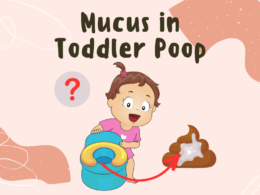Why Is Your Toddler Spitting?
There are a few reasons why your toddler might be spitting. It could be a way to express frustration, anger, or even excitement. It could also be a response to something they don’t like, such as the taste of food or a new activity. In some cases, toddlers may spit because they’re imitating others, such as an older sibling or friend.
How to Stop a Toddler From Spitting
Is your toddler spitting frequently? Here are a few tips to help stop the behavior:
Talk to your toddler about their emotions. Help them understand why they might feel upset and how to express those feelings in a different way.
- Model positive behavior. If you’re angry, don’t lash out yourself. Show your toddler how to calmly deal with difficult emotions.
- Provide outlets for frustration. Give your toddler a chance to release their energy in a positive way, such as through physical activity, dance, or art.
- Ignore the behavior. In some cases, spitting can be an attention-seeking behavior. If you react, your toddler may do it more often to get a reaction.
- Show them where they can spit all they want. If your toddler is spitting because they’re excited, try to redirect the behavior. Show them where they can spit (outside, in the toilet, etc.) so they don’t do it in places where it’s not appropriate.
- Tell your child that spitting is unacceptable, in simple words. For example, “spitting is gross” or “you’re making a mess, please stop it.”
- Create a consequence. If your toddler spits frequently, establish a consequence, such as time-out or loss of privileges. Be sure to follow through with the consequence consistently to stop the behavior.
- Get help if needed. If you’re struggling to manage your toddler’s spitting, talk to their doctor or a child development specialist. They can offer additional tips and resources.
How you manage the behavior will depend on the reason for the spitting. By understanding why your toddler is spitting, you can more effectively stop the behavior. With patience and consistency, you can help your toddler learn how to express their emotions in a positive way.
How to Get a Toddler to Stop Spitting Out Food
If your toddler is spitting out food, it could be for a few reasons. They may not like the taste, texture, or temperature of the food. Or, they may be full or not ready to eat. If your toddler is spitting out food frequently, try these tips:
- Experiment with different foods. Offer a variety of foods, textures, and flavors. With time and exposure, your toddler may learn to like new foods.
- Encourage them to take small bites. Cutting food into smaller pieces can make it more manageable for your toddler. They’re also more likely to eat food that’s bite-sized.
- Let them feed themselves. Toddlers are more likely to eat food if they’re in control of the process. Allowing them to feed themselves can also be a fun (although messy) learning experience.
- Don’t force them to eat. If your toddler isn’t hungry, don’t force them to eat. This can lead to negative associations with food and mealtimes.
A toddler spitting out food frequently warrants a call to their doctor. They can rule out any medical conditions that may be causing the behavior. If your child is abnormally sensitive to food textures or tastes, they may have a condition called oral aversion. Your doctor can provide more information and resources if needed.
When to Worry About Toddler Spitting
In most cases, spitting is a normal part of toddler development and nothing to worry about. However, there are a few red flags to watch out for. If your toddler is spitting up blood or green vomit, this could be a sign of an infection or other medical condition. This warrants a call to your toddler’s doctor.
Other causes for concern include:
- excessive drooling;
- inability to eat or drink;
- difficulty swallowing;
- weight loss; and
- signs of dehydration, such as a dry mouth, sunken eyes, or lethargy.
Now you know everything about toddler spitting. With a little patience and understanding, you can help your toddler manage their emotions in a positive way. And, if needed, you know when to seek medical help.
Similar Posts:

















